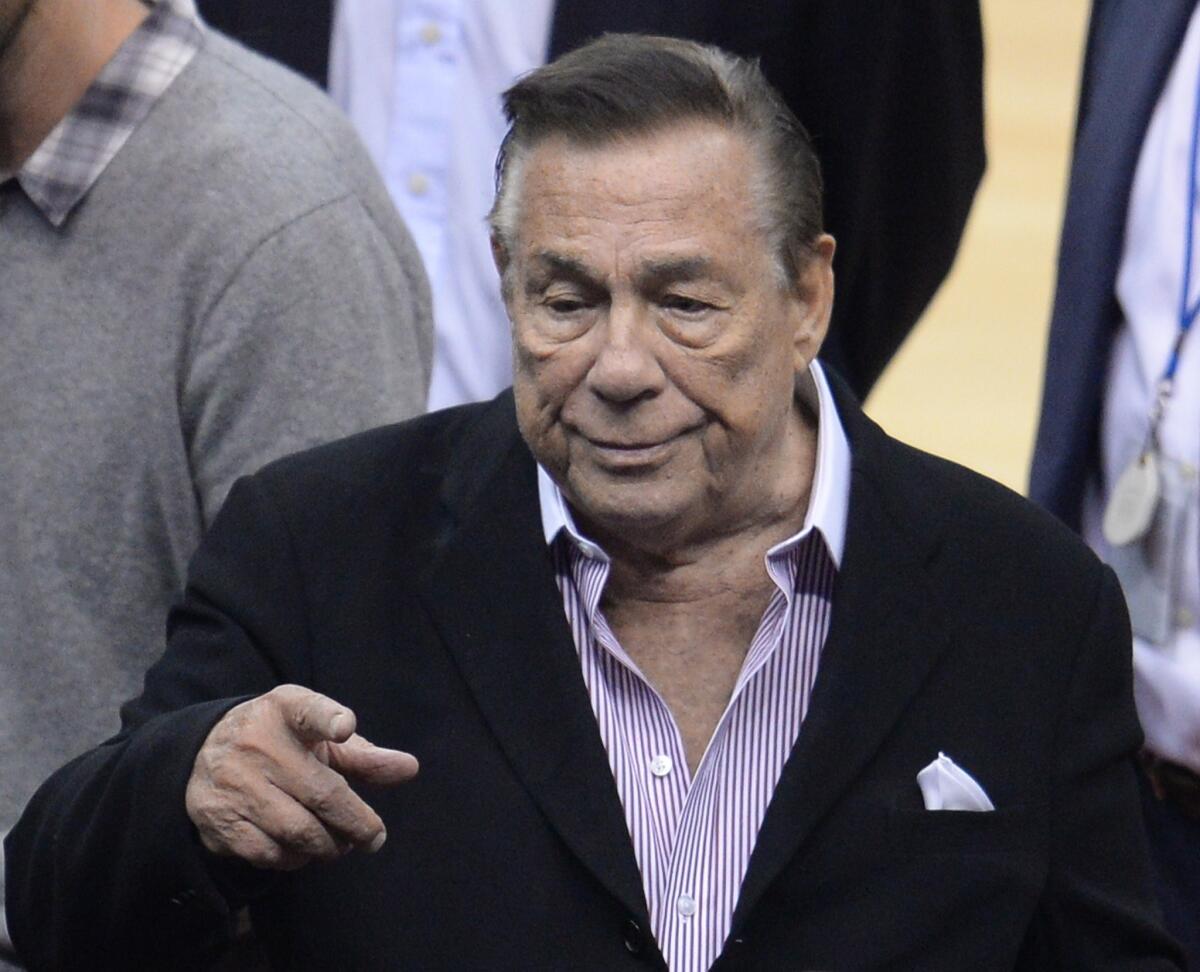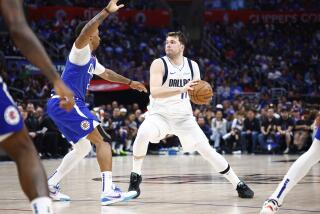Donald Sterling and the NBA: Your guide to the looming legal morass

- Share via
The moment that National Basketball Assn. Commissioner Adam Silver said he would ask the league to eject Donald Sterling as a team owner, he handed Sterling the opportunity to cause the league a tremendous amount of pain and suffering.
Make that more pain and suffering.
On the surface, the NBA constitution gives the owners all the authority they need, pure and simple, to seize the Los Angeles Clippers from Sterling’s ownership and sell the franchise to the highest bidder. But under the surface, things can get very impure and complicated. A smooth transition of ownership depends on Sterling’s acquiescence, which is by no means assured.
“The best outcome for the NBA is to get sponsors and fan groups and players and the union to persuade Sterling that he doesn’t want to own a franchise that’s not viable,” Gary R. Roberts, a sports law expert at Indiana University, told us. A recalcitrant Sterling presents “too much risk of business disruption and embarrassment....He could say, ‘To hell with you, I’m not selling.’”
Trying to seize a team from an owner who doesn’t want to give it up would be a unique situation for a sports league, Roberts says. The NBA did buy the New Orleans Hornets in 2010, but that was a deal with a willing owner who had been unable to complete a sale on his own, and was manifestly a temporary step. The team is now the New Orleans Pelicans and is owned by Tom Benson, owner of the NFL Saints.
Let’s take a gingerly walk through the legal minefield of the Sterling affair.
The authority and procedure for terminating ownership is set forth in articles 13 and 14 of the league constitution. (We’re referring to a document dated May 29, 2012, and which may have been amended since that time.) They say that following an accusation that an owner has violated any of 10 rules, ownership can be terminated by a vote of three-fourths of the owners, not including the accused. Silver is requesting that vote in the Sterling case.
Most of the listed rules apply to an owner’s failing to meet financial obligations, allowing gambling or manipulating game scores. But there’s a catch-all provision applying to owners who “willfully violate any of the provisions of the Constitution and By-Laws, resolutions, or agreements of the Association.”
Such as which provisions of the constitution? For those you have to go down to Article 35A. The article provides, among other things, for penalizing any owner, officer, manager, or coach who “gives, makes, issues, authorizes or endorses any statement having, or designed to have, an effect prejudicial or detrimental to the best interests of basketball or of the Association or of a Member or its Team,” or who is “guilty of conduct prejudicial or detrimental to the Association.” The article imposes a fine for each violation, but by imputation it could lead to an Article 13 termination.
Under Article 14A, the team assets of a terminated owner are placed under the control of the commissioner, who can deal with player contracts and also place the assets--that is, the franchise--up for sale.
A close reading of this language hints at grounds on which Sterling could challenge a termination vote. Did he “willfully” make a detrimental statement or engage in detrimental conduct? The basis for the league’s move against him is a recorded private conversation with a woman not his wife, made public through no action of his own. (We can probably assume he didn’t release the tape himself.)
Did he make a statement or engage in conduct that the league hasn’t condoned in other circumstances? He’s certainly been accused of racially disparaging language in the past.
And what if other owners are guilty of similar statements or behavior? Not all the owners are angels in business or their personal lives. One thing that might make Sterling a dangerous adversary in court, should he choose to force this affair into court, is that as the longest-serving NBA owner he probably knows plenty that could embarrass owners or the league. It’s probably a safe bet that the NBA doesn’t relish giving him the chance to take any other owners’ depositions.
In light of all that, Roberts observes that the NBA would be well-advised to try to persuade Sterling to sell the team voluntarily. It has begun that process by banning him for life from all team and league affairs, which sucks all the fun out of team ownership.
Among the complications, however, is that there’s an enormous capital gains tax liability embedded in the team, which Sterling bought for less than $13 million in 1981 and is now valued at somewhere between $600 million and $1 billion. At the higher price, the tax could be $200 million. If the team were to transfer to Sterling’s heirs upon his death, that tax would be extinguished. On the other hand, the heirs might owe an even higher estate tax. For one expert’s look at the tax complexities, see here.
Therein lies an opening for the NBA to negotiate an exit for Sterling--offer to cover at least some of the capital gains tax. But even then, the ball may be in Sterling’s court. If he wants to make things tough for the NBA, his opportunities may just be starting.
More to Read
Inside the business of entertainment
The Wide Shot brings you news, analysis and insights on everything from streaming wars to production — and what it all means for the future.
You may occasionally receive promotional content from the Los Angeles Times.











